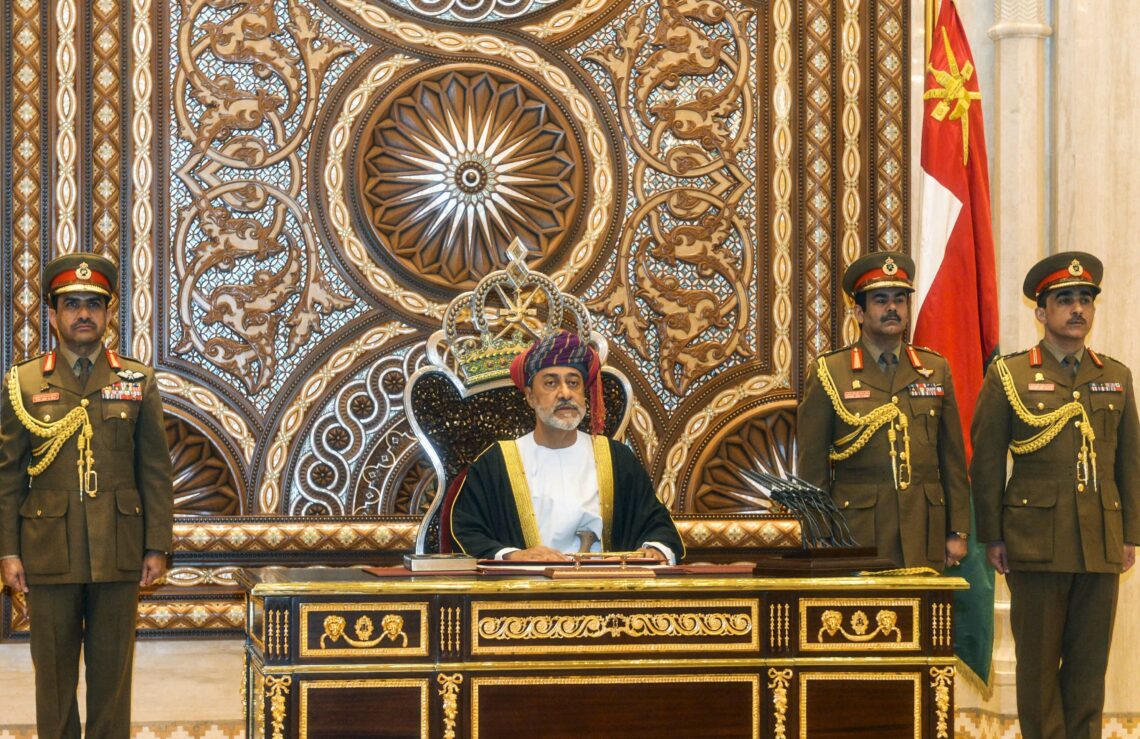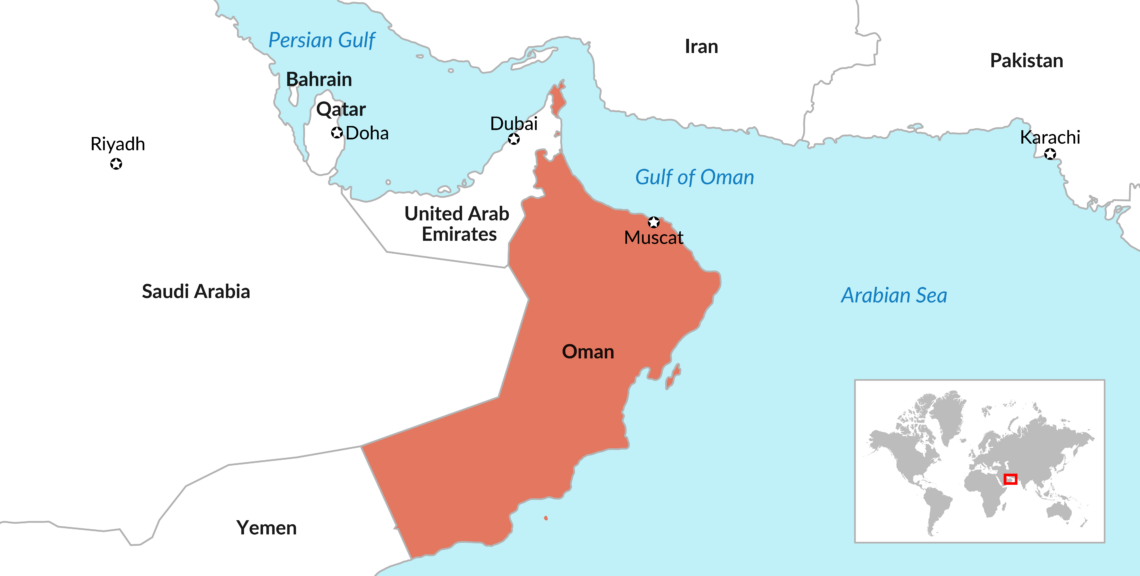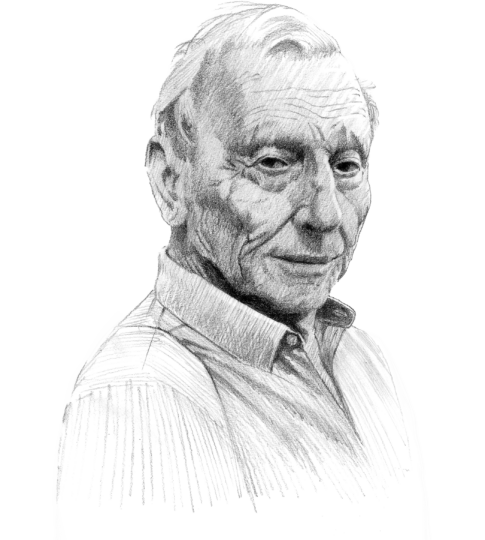Oman’s new ruler pledges to fulfill his predecessor’s legacy
The power transition that followed the death of the long-reigning sultan of Oman, Qaboos bin Said, is a testimony to the stability of the Al Said regime, especially in such a volatile region. However, the new sultan, Haitham bin Tariq, will face significant challenges.

In a nutshell
- The late sultan put Oman on the path to modernization during his 50-year rule
- Sultan Haitham has declared his intention to uphold his predecessor’s values
- The new ruler will face increasing regional tension and domestic pressure
Sultan Qaboos bin Said Al Said died on January 10 at the age 79 after a long illness. He had no children. The next day, his cousin, Culture Minister Haitham bin Tariq Al Said was sworn in as his replacement.
Sultan Qaboos had ruled Oman for 50 years, a feat achieved by no other head of state in the Middle East. Having ousted his father in 1970 through a peaceful palace coup, he embarked on a foreign policy course bent on keeping clear of the clashes raging around his country – from the confrontation between Gulf allies and the United States and Iran to the simmering feuds between the Gulf countries themselves. He also initiated far-reaching reforms in the fields of economy and culture, drawing the Oman Sultanate out of the isolation and underdevelopment it had known under his father’s rule.
In his first speech, the new ruler pledged to fulfill his predecessor’s legacy, stating: [[blockquote]]We will follow the same line as the late sultan, and the principles that he asserted for the foreign policy of our country, of peaceful coexistence among nations and people, and good neighborly behavior of noninterference in the affairs of others.
Veteran diplomat
Will Sultan Haitham bin Tariq be able to make good on that pledge as regional conflicts intensify and there is a very real risk of war between the U.S. and Iran? No less importantly, can he deliver the political and economic reforms demanded by younger generations? There have been protests and street demonstrations since 2011 – the beginning of the Arab Spring – against a regime forbidding political activism and free press. The protesters also demanded the economic reforms needed to ensure their future.
Sultan Qaboos, who was only briefly married in the seventies, was childless. He had never named a successor to avoid potential squabbling. But, as is traditional, he had consigned his choice in a sealed letter to be opened after his death should the Royal Family Council fail to agree on a successor among male descendants of the founding father. After his death, the Council decided to open the letter forthwith in a televised broadcast. Sultan Qaboos had named 66-year-old Haitham bin Tariq, who has two sons.
Facts & figures

The transition was unusually smooth, a testimony to the political stability achieved by the late ruler – an accomplishment which the royal family and elites wished to preserve.
The new sultan, an Oxford graduate, is a veteran diplomat. He served as director general of the Ministry of Foreign Affairs after having worked there in various capacities for 16 years. He is well known in international circles and has met many world leaders during the missions he executed on behalf of Sultan Qaboos. This experience will stand him in good stead when steering his country’s foreign policy along his predecessor’s line.
On the other hand, he has no experience in dealing with weighty political and security issues. Fortunately, he is no novice when it comes to economic policy. Reputed to be a shrewd businessman, he was chairman of the Oman 2040 Vision plan, which aimed to lessen the country’s dependence on oil and gas exports and develop alternative sources of revenue based on the private sector and foreign investments.
Measured policy
Oman has a long and troubled history. The Al Said family has been in power since the middle of the 18th century, having driven away the Ottomans. By the beginning of the following century, the Muscat and Oman sultanate as it was then called, was at the head of a small empire stretching from the coast of Iran to Zanzibar. Most of these possessions were lost and in 1891, the country became a British protectorate, recovering its independence in 1971.
Qaboos, a graduate of Sandhurst Royal Military Academy, deposed his father in 1970 with the help of the British at the height of the Dhofar Rebellion in the southern part of the country. The rebels were assisted by the Popular Republic of South Yemen and backed by China and the Soviet Union. Saudi Arabia and Abu Dhabi, fearing for their own stability, gave nearly three billion dollars to the new Sultan to help him fight the rebels. Great Britain, Jordan and Iran (ruled by the Shah at the time) helped him train his army and also sent special units on the field. Qaboos negotiated a compromise with the insurgents and restored calm.
There are some five million inhabitants in Oman, 44 percent of them foreign workers; 75 percent of the Omanis belong to the Ibadi school of Islam, which predates the split between Shia and Sunna. The 300,000 square-kilometer country, situated in the southeast quadrant of the Arabian peninsula, shares a border with the United Arab Emirates to the northwest, Saudi Arabia to the west and Yemen to the south-east – a dangerous neighborhood. Its northeastern region faces Iran beyond the Gulf of Oman. The country also owns a small enclave surrounded by the Emirates, overlooking the Strait of Hormuz.
Oman’s neighbors are either at odds with bordering countries or actively fighting them. Sultan Qaboos not only managed not to embroil his sultanate in any of their conflicts but also became a mediator. He developed good relations with Iran and Saudi Arabia, although Riyadh was unhappy with the independent diplomacy he promoted.
The greatest achievement of the late sultan’s foreign policy was his contribution to the secret talks between the U.S. and Iran.
Though the sultanate is an active member of the Gulf Cooperation Council, the ruler refrained from joining the coalition led by Saudi Arabia and the Emirates to help the Yemeni government fight the Houthi rebellion backed by Iran. He stood alone when they, along with Bahrain and Egypt, boycotted Qatar, because of its ties to Iran and its support for radical Islamic organizations. Nevertheless, they reluctantly respected his position and used his neutral standing to hold talks with the Houthis in Oman’s capital, Muscat.
The greatest achievement of the late sultan’s foreign policy was his contribution to the secret talks between the U.S. and Iran during the Obama presidency (2009-2017), which led to the signature of the 2015 nuclear agreement. His last and perhaps most startling initiative, when he was already very ill, was to invite Israeli Prime Minister Benjamin Netanyahu to make an official visit in October 2018. It was intended as a way of promoting peace between Israel and Palestinians – who expressed their displeasure – but also to demonstrate his intent to turn Oman into a sophisticated regional economic and defense hub.
The sultan believed Israel could help him further these goals with the support of the U.S. This was not the first contact between the two countries. At the time of the Dhofar Rebellion, Israel assisted the British forces in helping the sultan. In 1979, Oman joined Sudan in refusing to boycott Egypt following the signature of the peace treaty with Israel. After peace was signed between Jordan and Israel in 1994, Qaboos showed his support for King Hussein (who had assisted him during the rebellion) by inviting then-Israeli Prime Minister Yitzhak Rabin to visit Oman. Later, he sent his foreign minister to attend Rabin’s funeral. In 1996, he extended an invitation to Prime Minister Shimon Peres to come to Muscat for the opening of an Israeli commercial office as well as a center for the study of desalination, a field of vital importance in the drought-plagued Middle East.
It was Sultan Qaboos who introduced Qatar’s ruler Sheikh Ahmed Al-Thani to Shimon Peres, leading to the opening of an Israeli commercial center in Doha. Though both offices were closed in the wake of the Second Intifada, the center for the study of desalination still functions and serves as a conduit between the two countries.
Modernization
At the time of the 1970 coup, which ushered in Sultan Qaboos, there were only three schools in Oman and barely 10 kilometers of asphalt roads, all of them in Muscat. Thanks to the sultan’s carefully modulated foreign policy, the ruler was able to focus on political and economic reforms. His first steps were to set up a consultative council whose members he appointed, publish a constitution in 1996 and, in the following year, grant women the right to vote and be elected – even though the first general elections were only held in 2003. However, the parliament has no real power and political parties are forbidden. Sultan Qaboos, as Prime Minister, also handled the portfolios of defense and foreign affairs and the chairmanship of the central bank.
The rise in oil prices after 1973 helped him build much-needed infrastructure – roads, air and seaports, academic and cultural institutions – slowly turning the backward, remote kingdom into a fast-developing country. He intended to create modern agriculture and industry to diversify state revenues, 90 percent of which came from oil and gas exports, and at the same time offer work opportunities to the dispirited youth of the country.
The rise in oil prices after 1973 helped build much-needed infrastructure.
Oman was producing 79,000 barrels of oil per day (bpd) in 1967. By 2016, it had gone as high as 900,000 per day, with a yearly average of 700,000 – not a lot compared to oil-rich neighbors like Saudi Arabia and the United Arab Emirates, but a substantial source of financing the boost in living standards and developing the country.
Though the sultan had set up a long-term plan, as the price of oil went down, its implementation slowed. In the years 2017-2018, output barely reached 870 000, leading to further financial loss. Oil still makes up 71 percent of state revenues. Budget cuts had to be made and the subsequent austerity meant that gasoline was no longer fully subsidized. Several programs needed to be abandoned. There was an angry popular response, swiftly quashed by security forces. Projections for the year 2019 show oil climbing to 74 percent of revenues.
Scenarios
The Vision 2040 program launched last April by Sultan Qaboos was a revamped plan to replace the failed Vision 2020, which was derailed by falling oil prices. Its focus is in the further development of the industry, tourism, land and sea transport, mining, agriculture, and fishing. Haitham bin Tariq had been appointed to lead it.
Among the program’s most promising aspects are the development of the ports of Duqm, Salalah and Sohar on the coasts of the Arabian Sea and the Indian Ocean. The ports are positioned to leverage Oman’s advantageous location and turn it into an international trade hub at the calculated risk of antagonizing the Emirates, which has the same objective. Most of the building and development efforts revolved around the port of Duqm, slated to be a significant link in the New Silk Road, China’s Belt and Road Initiative.
China is also participating in setting up the “Special Economic Zone” in Duqm. In 2016, the Asian Infrastructure Investment Bank allocated $265 million to increase the capacity of that port, while Oman Wanfang, a consortium of six private Chinese companies, pledged to invest $10.7 billion in a joint Omani-Chinese industrial park. The first stage is due to be completed by 2022.
The issues posed by the high number of foreign workers, estimated at 2.21 million, also had to be tackled. In January 2018, the government announced a six-month ban on employing foreign workers in 10 sectors and 87 professions. Their total number fell to 2.1 million, not a significant drop, but essential sectors of the economy, like IT, sales and construction, were affected. Oman cannot forgo the contribution of foreign work until the country’s youth is trained to replace them.
The late sultan laid the foundations of an independent and neutral foreign policy that allowed his country to navigate the treacherous waters of a volatile neighborhood, all the while building a sustainable economy that would bring Oman safely into the 21st century. His successor will have to overcome several obstacles, in any case. That he sent his ambassador, alongside the representatives of the Emirates and Bahrain, to the White House on January 28, when President Trump presented his “deal of the century” could mean that he is determined to stick to his predecessor’s line.
There is no appeasement in sight in regional conflicts. Tehran is more determined than ever to impose its Shia hegemony on the Middle East and, specifically, on Saudi Arabia and the Emirates, fomenting unrest among Shia minorities there. Also, it remains bent on destroying Israel. There is a real danger of escalation between Iran and the U.S. Can Sultan Haitham bin Tariq keep his hand on the helm and stick to the course fixed by his predecessor?
The sultanate’s friendly relations with Riyadh and Tehran – which passes on messages to Washington via Muscat – should help. Chinese investments will also serve as a buffer since Iran will be unwilling to endanger them.
Sultan Haitham has inherited a set of stiff challenges: developing the economy fast enough to make up for the oil shortfall and provide work for new generations; securing the necessary influx of investments and modern technologies; and, last but not least, persuading his people to free themselves from the bonds of ancient traditions and thought processes which hamper modernization efforts in so many Middle Eastern states.
His maiden speech indicates that he will do his best to be worthy of the confidence the late Sultan had in him.






